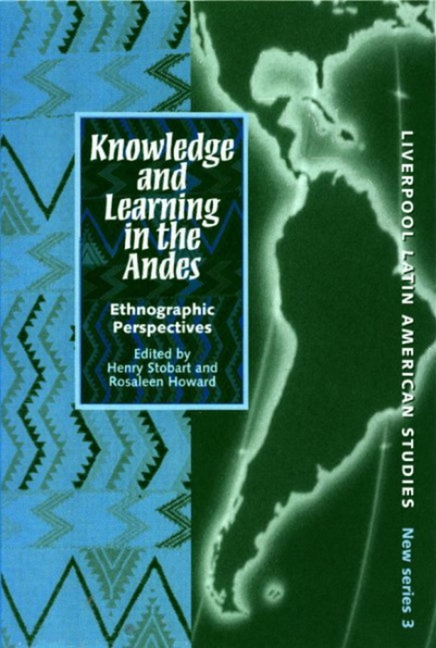Book contents
- Frontmatter
- Contents
- List of illustrations
- List of contributors
- Introduction
- Part I: Multiple Media in the Creation and Transmission of Knowledge
- 1 Yachay: The Tragedia del fin de Atahuallpa as Evidence of the Colonisation of Knowledge in the Andes
- 2 Transmission of Knowledge through Textiles: Weaving and Learning How to Live
- 3 Coloured Knowledges: Colour Perception and the Dissemination of Knowledge in Isluga, Northern Chile
- 4 Interlocking Realms: Knowing Music and Musical Knowing in the Bolivian Andes
- Part II: Knowledge, Power and Authority
- Part III: Conflicting Paradigms of Knowledge
- Index
4 - Interlocking Realms: Knowing Music and Musical Knowing in the Bolivian Andes
from Part I: Multiple Media in the Creation and Transmission of Knowledge
- Frontmatter
- Contents
- List of illustrations
- List of contributors
- Introduction
- Part I: Multiple Media in the Creation and Transmission of Knowledge
- 1 Yachay: The Tragedia del fin de Atahuallpa as Evidence of the Colonisation of Knowledge in the Andes
- 2 Transmission of Knowledge through Textiles: Weaving and Learning How to Live
- 3 Coloured Knowledges: Colour Perception and the Dissemination of Knowledge in Isluga, Northern Chile
- 4 Interlocking Realms: Knowing Music and Musical Knowing in the Bolivian Andes
- Part II: Knowledge, Power and Authority
- Part III: Conflicting Paradigms of Knowledge
- Index
Summary
In this chapter dedicated to the music of a rural community of ayllu Macha, northern Potosí, Bolivia, I wish to approach knowledge in terms of sensibility and as a process of interaction. Such sensibility concerns embodied ways of knowing, such as socially relevant behaviour and sensory understandings, which are often difficult, and sometimes all but impossible, to verbalise.Andean music is not unique in this sense; as Derryk Cooke has observed more generally, ‘the thoughts which are expressed to me by a piece of music are not too indefinite to be put into words, but on the contrary too definite’ (1959: 12, cited in Blacking 1995: 36).
When we speak of ‘knowing’ a particular piece of music or genre it is generally the experience of embodying the sounds – and to some degree ‘emplacing’ ourselves through them – to which we refer, rather than to any technical knowledge of the music. We seem principally to remember and reproduce melodies as sequences of embodied gestures without any mental representation of, for example, intervallic, rhythmic or metric structure. Several writers have compared this embodied experience of music to dancing. In the words of Roger Scruton:
In responding to the meaning of a piece of music, we are being led through a series of gestures which gain their significance from the idea of a community that they imitate, just as do the gestures of a dance … As we move with these elements, therefore, we are led by our sympathies into a wholly new totality: a musical bridge is created, spanning distant reaches of human life. (Scruton 1993: 201, cited in Frith 1996: 266–67)
The musical ‘bridge’ invoked here by Scruton emphasises the way music is able to connect people and places as interlocking realms. No musical performance, personal practice on an instrument, or even private listening to a recording, is ever a truly independent act. Such activities automatically connect us with a multiplicity of social relationships, past experiences and places. Music is in constant dialogue with its past, its potential future, and the cultural spaces it creates and articulates. However innovative or individualistic musicians may attempt to be, their creativity always operates in dialogue with learned social and cultural norms – an unavoidable characteristic that has deeply frustrated a number of twentieth-century composers.
- Type
- Chapter
- Information
- Knowledge and Learning in the AndesEthnographic Perspectives, pp. 79 - 106Publisher: Liverpool University PressPrint publication year: 2002



